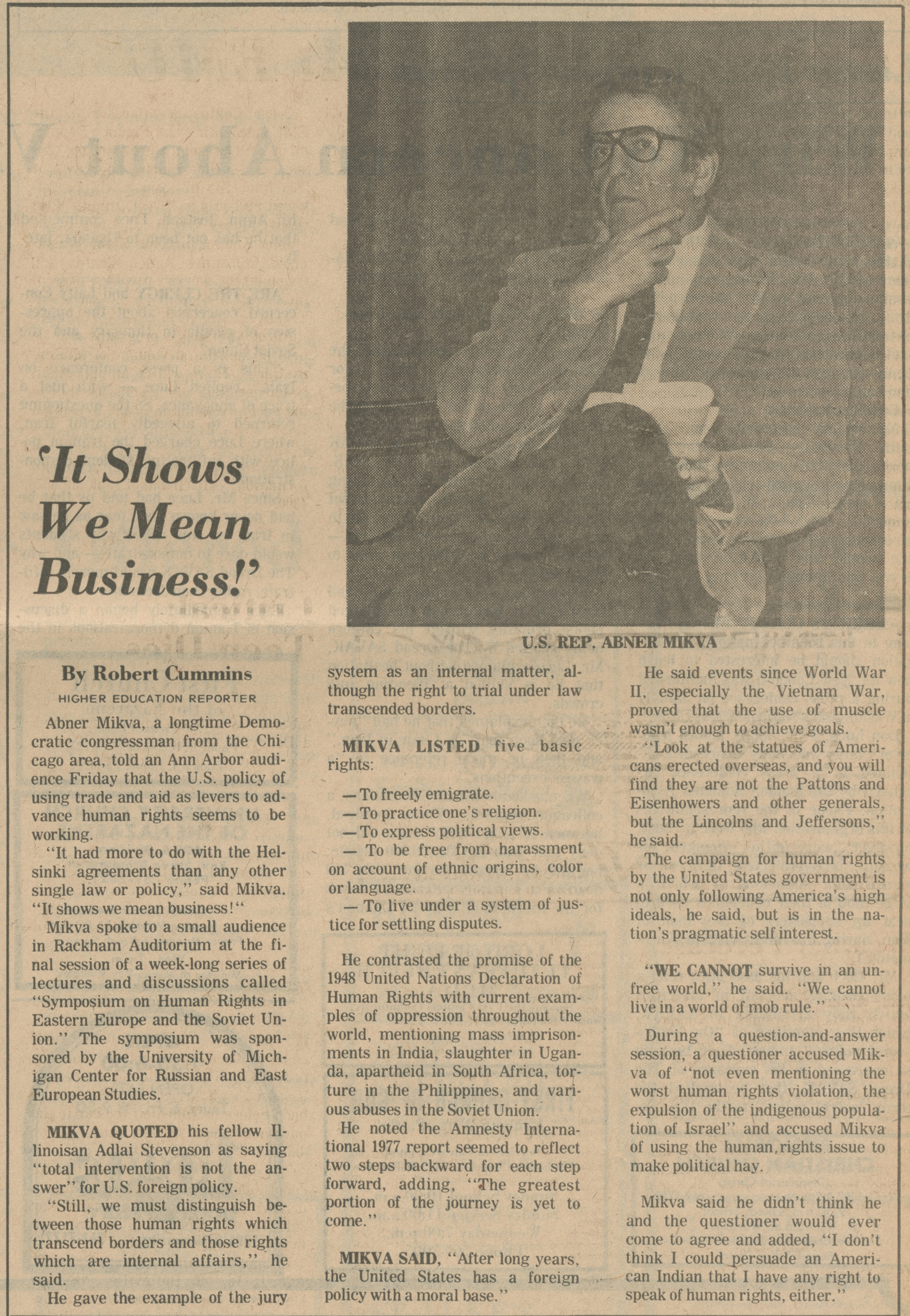'It Shows We Mean Business!'

'It Shows We Mean Business!'
By Robert Cummins
HIGHER EDUCATION REPORTER
Abner Mikva, a longtime Democratic congressman from the Chicago area, told an Ann Arbor audience Friday that the U.S. policy of using trade and aid as levers to advance human rights seems to be working.
"It had more to do with the Helsinki agreements than any other single law or policy," said Mikva. “It shows we mean business! “
Mikva spoke to a small audience in Rackham Auditorium at the final session of a week-long series of lectures and discussions called "Symposium on Human Rights in Eastern Europe and the Soviet Union.” The symposium was sponsored by the University of Michigan Center for Russian and East European Studies.
MIKVA QUOTED his fellow Illinoisan Adlai Stevenson as saying "total intervention is not the answer" for U.S. foreign policy.
“Still, we must distinguish between those human rights which transcend borders and those rights which are internal affairs,” he said.
He gave the example of the jury system as an internal matter, although the right to trial under law transcended borders.
MIKVA LISTED five basic rights:
—To freely emigrate.
— To practice one's religion.
— To express political views.
— To be free from harassment on account of ethnic origins, color or language.
— To live under a system of justice for settling disputes.
He contrasted the promise of the 1948 United Nations Declaration of Human Rights with current examples of oppression throughout the world, mentioning mass imprisonments in India, slaughter in Uganda, apartheid in South Africa, torture in the Philippines, and various abuses in the Soviet Union.
He noted the Amnesty International 1977 report seemed to reflect two steps backward for each step forward, adding, “The greatest portion of the journey is yet to come."
MIKVA SAID. "After long years, the United States has a foreign policy with a moral base.”
He said events since World War II, especially the Vietnam War, proved that the use of muscle wasn't enough to achieve goals.
"Look at the statues of Americans erected overseas, and you will find they are not the Pattons and Eisenhowers and other generals, but the Lincolns and Jeffersons,” he said.
The campaign for human rights by the United States government is not only following America's high ideals, he said, but is in the nation's pragmatic self interest.
“WE CANNOT survive in an un-free world," he said. “We cannot live in a world of mob rule.”
During a question-and-answer session, a questioner accused Mikva of "not even mentioning the worst human rights violation, the expulsion of the indigenous population of Israel” and accused Mikva of using the human,rights issue to make political hay.
Mikva said he didn't think he and the questioner would ever come to agree and added, "I don’t think I could persuade an American Indian that I have any right to speak of human rights, either.”